People Who Lose Interest In Talking To Anyone As They Get Older Usually Have These 11 Reasons
Social isolation and loneliness aren't uncommon, especially amongst aging demographics.
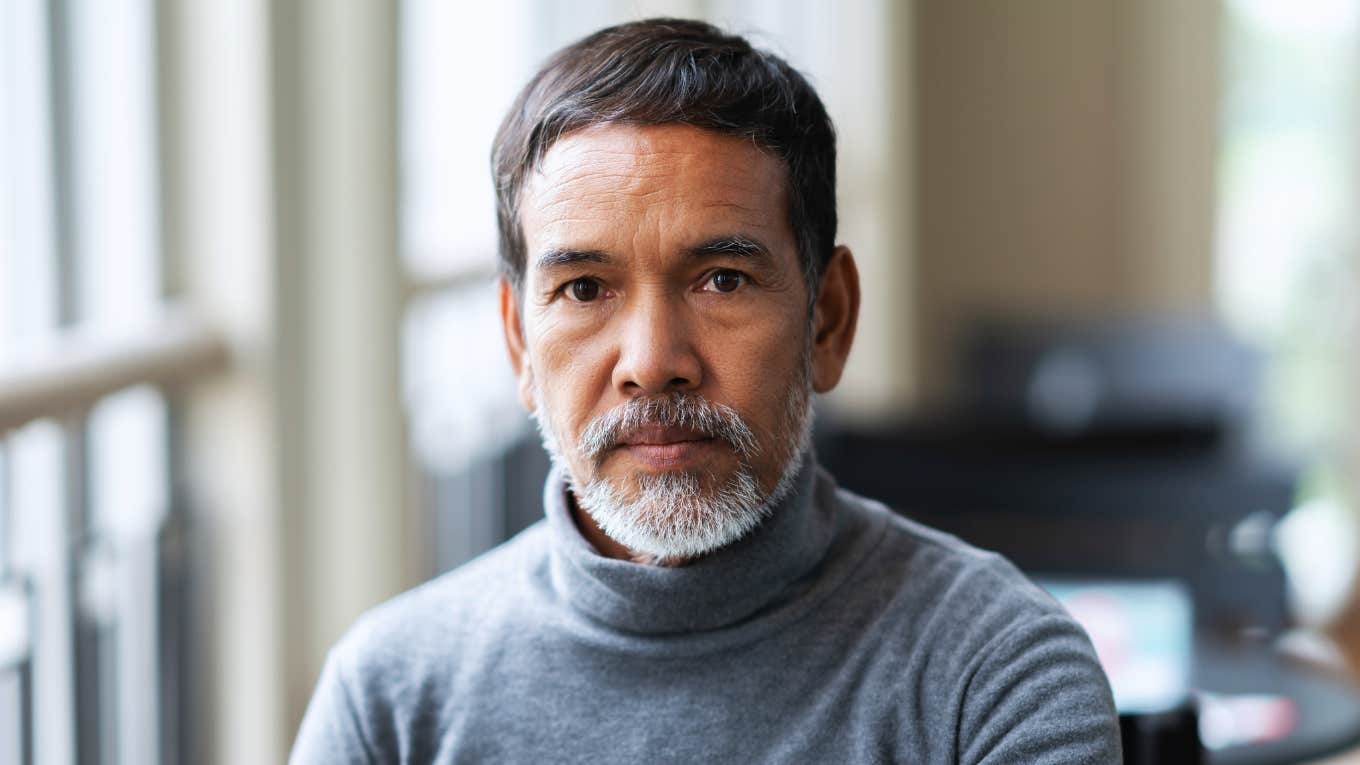 Chay_Tee | Shutterstock
Chay_Tee | Shutterstock Many aging populations grapple with social isolation and loneliness at disproportionate rates, but there are reasons people who lose interest in talking to anyone as they get older usually have, and it's not always limited by their physicalities or environment. There are a number of mental, emotional, and societal shifts that also contribute to this phenomenon, especially as our culture shifts away from the values that aging populations relied on early in life for a sense of normalcy or stability.
Like sociologist Anna Akbari suggests, alone time and solitude can be stabilizing — helping people of any age demographic to cope with constant change, anxiety, or fear. Of course, avoiding social interactions and conversations entirely has its own set of consequences, but with the right routine, habits, and self-awareness, even people who aren't making the intentional choice to lose interest in talking with others can live a healthy, happy, and fulfilling life.
Here are 11 reasons people who lose interest in talking to anyone as they get older usually have
1. They're burnt out
 Ground Picture | Shutterstock
Ground Picture | Shutterstock
According to a 2022 study on burnout from Academic Medicine, social isolation and feelings of loneliness are strongly related to being overworked and battling chronic stress. Taking a toll on personal well-being and relationships, people who lose interest in talking to anyone as they get older could very well be experiencing long-term symptoms of burnout — having lost close connection, a sense of self-esteem, or control over their routine as a result of overworking themselves.
Being afraid of the unknown, especially when you've grown burnt out from trying to grasp at control, whether at home or in the workplace, could mean you don't have the extra energy to spend on making new connections or socially interacting with people outside of the house.
2. They enjoy their solitude
 Ground Picture | Shutterstock
Ground Picture | Shutterstock
People who lose interest in talking to anyone as they get older sometimes just prefer their solitude — fostering connections with their partner at home, investing in personal hobbies, and self-reflecting with intentional alone time outside of social environments.
Especially for people who were overly social or had a demanding career, it's not entirely surprising that they'd prefer to craft the latter half of their life around personal interests and alone time.
Having pets, hobbies, and a close circle of friends and family is fulfilling in its own right — in some cases, it's natural to drift away from and lose interest in talking to new people.
3. They have unresolved trauma
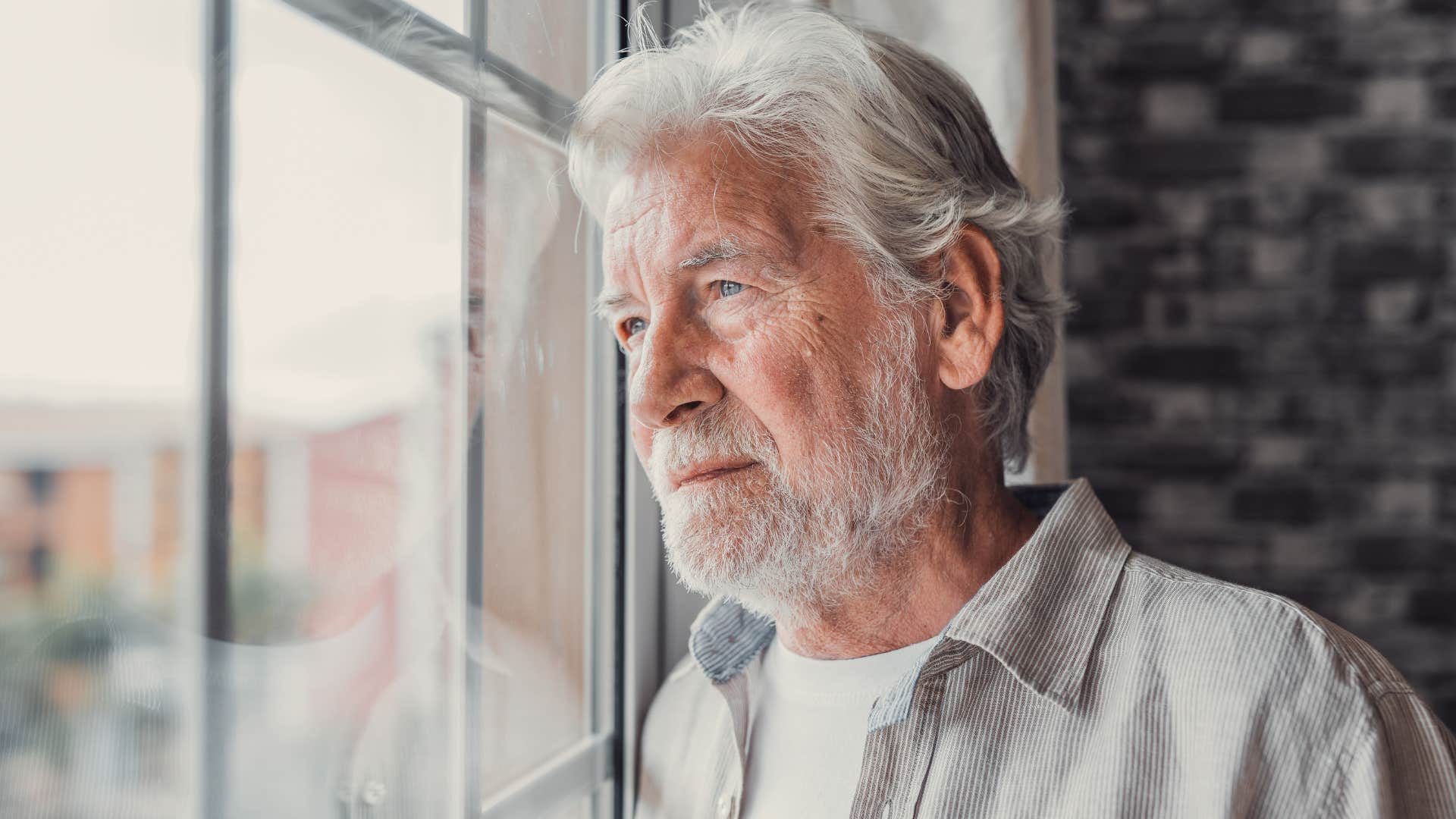 Perfect Wave | Shutterstock
Perfect Wave | Shutterstock
Grappling with unresolved trauma or bad experiences from earlier in life is one of the glaring reasons people who lose interest in talking to anyone as they get older usually have. According to a study from Brain and Behavior, people who have experienced trauma or neglect are more likely to be socially isolated or excluded in adulthood, but they're also more likely to deal with mental illness like depression or anxiety that can subtly spark feelings of loneliness.
Of course, unresolved trauma doesn't always manifest in this way — it can just as easily spark people-pleasing behaviors in someone who relies on others for external validation and support, actually increasing their need for social distractions. Yet bad experiences, conversations, or trauma can still spark anxious mindsets in people aging, encouraging them to retreat to what (and who) they know.
4. They're physically isolated
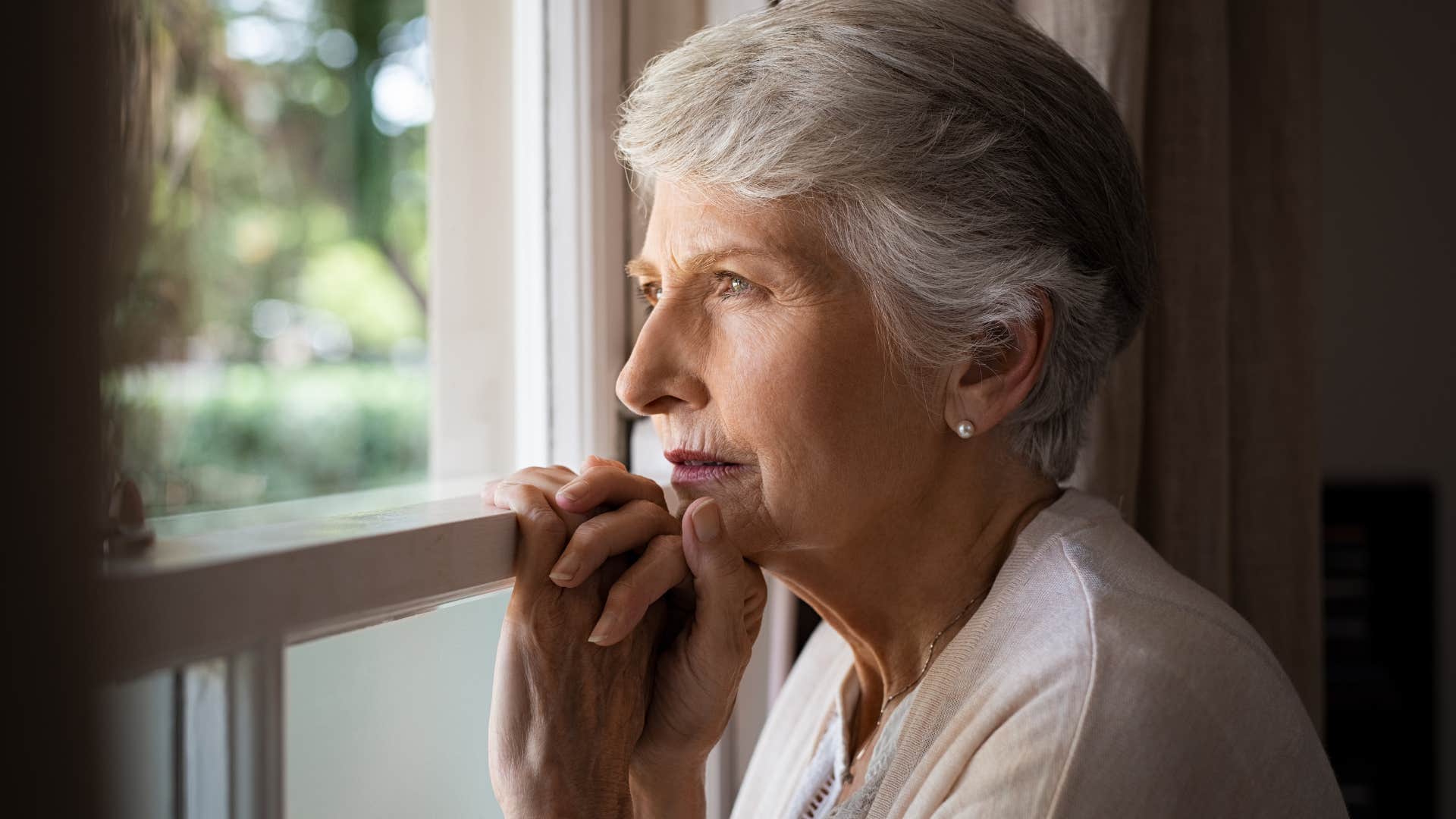 Ground Picture | Shutterstock
Ground Picture | Shutterstock
According to the University of Michigan's National Poll on Healthy Aging, one in three adults between the ages of 50 and 80 reported feeling isolated from others, with 37% saying they lacked regular companionship. In some cases, these statistics are supported by aging populations' physical limitations — grappling with disability or physical ailments — but in others, it's entirely environmental.
For retired folks, maintaining relationships with people still balancing family responsibilities and full-time jobs can be difficult. For others who have moved away or into an assisted living center, they feel cut off from their regulated relationships and connections.
Of course, for the majority, they don't feel like they have the opportunity to make new connections and aren't regularly practicing social skills that help to reduce their anxiety around talking to new people.
Losing interest in talking to people as you get older can range from a variety of situations and reasons, but if you consistently fall into a habit where you prefer alone time or feel more comfortable outside of social contexts, it's not surprising that you'll continue to prioritize that schedule.
5. They struggle with low self-esteem
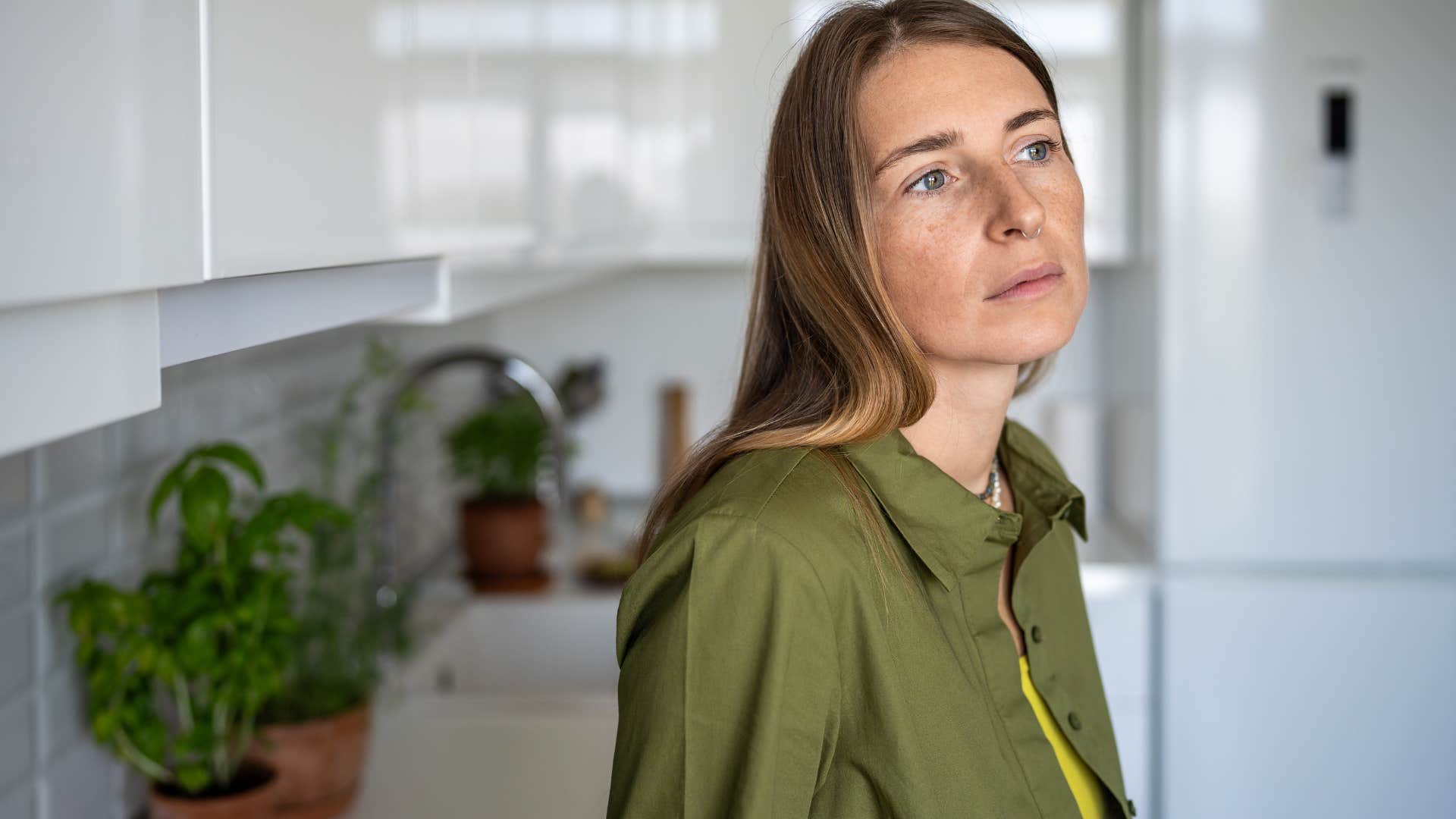 DimaBerlin | Shutterstock
DimaBerlin | Shutterstock
While research, like expert insights from Tulane University, does suggest that social isolation and loneliness can feed into cycles of low self-esteem and self-worth, the opposite can also be true. If you don't feel confident in your social skills or are constantly battling fears of rejection, judgment, or embarrassment, you're more likely to avoid social situations and subconsciously isolate yourself.
Many people who lose interest in talking to anyone as they get older are unknowingly coping with their own low self-esteem or anxiety, preferring to feed into hobbies, solitude, and comfortable relationships, rather than put themselves in new environments where they're forced to confront those struggles.
6. They're tired of people crossing their boundaries
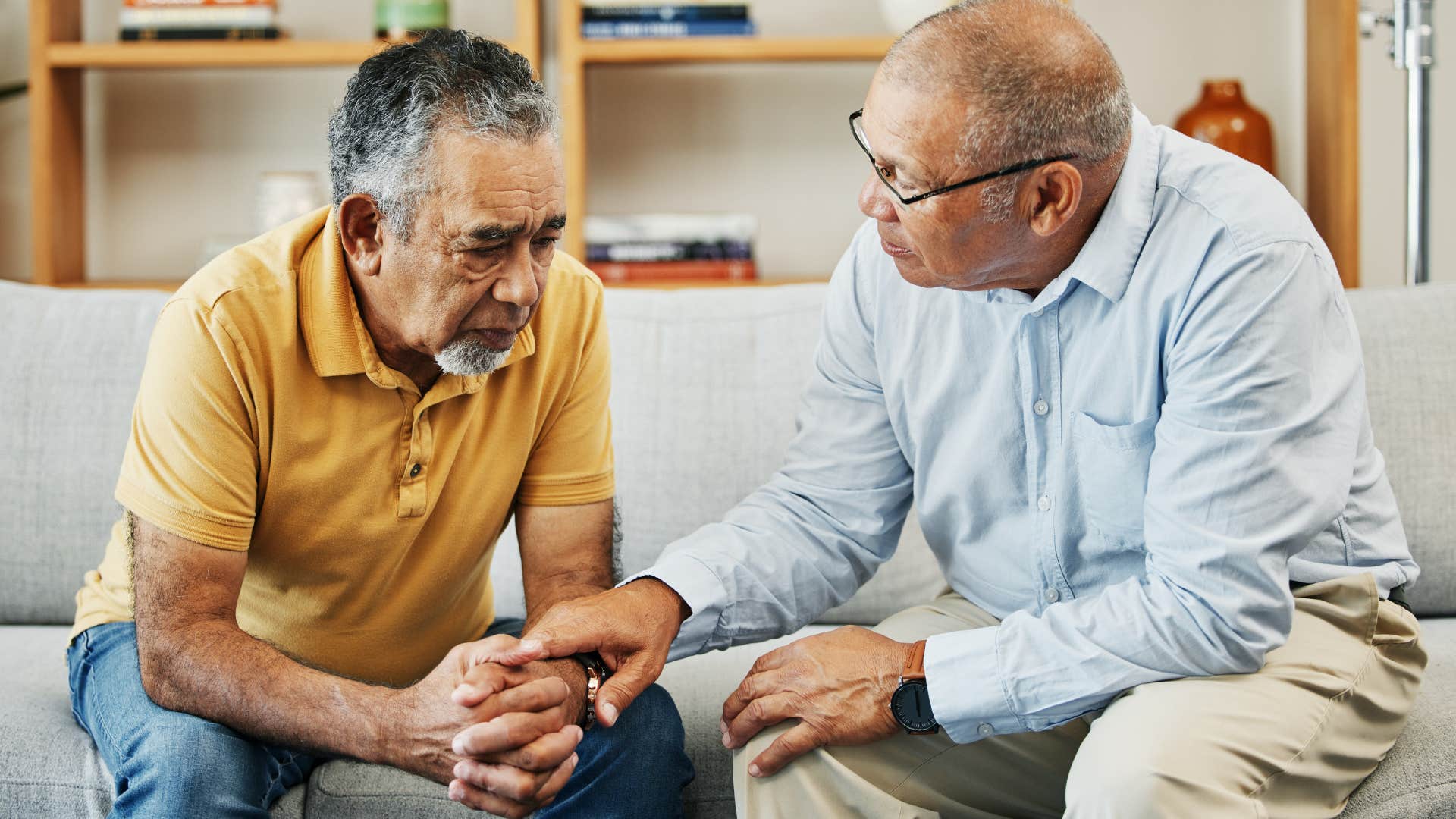 PeopleImages.com - Yuri A | Shutterstock
PeopleImages.com - Yuri A | Shutterstock
Constantly having your boundaries crossed, your needs unmet, and your well-being compromised can be exhausting, and it often encourages people to take a step back from sparking new connections and putting themselves out there.
It's a toxic cycle, working up the courage to meet someone new, only to be reminded of the exhaustion and mental toll a person with unhealthy relationship tendencies can have on your well-being.
Especially for people who are grappling with unresolved trauma that affects their ability to form and maintain healthy relationships, it's not uncommon to fall into a cycle of connecting with repeat offenders and getting into unfortunate situations.
From disrespectful partners who cross their boundaries to narcissistic behaviors in a relationship, people who lose interest in talking to anyone as they get older may simply be tired of nurturing relationships that turn out to be unhealthy or toxic.
7. They're committed to 'protecting their peace'
 insta_photos | Shutterstock
insta_photos | Shutterstock
While too much solitude and alone time can spiral out of control, affecting your relationships and general well-being, prioritizing a routine that allows for self-reflection and time for your hobbies with intentional alone time is healthy and important.
People who lose interest in talking to anyone as they get older are sometimes affected by adverse experiences, toxicity, or trauma, but they also may simply appreciate alone time. Whether they're building their self-awareness, reflecting on their experiences, or staying quiet to "protect their peace" and "guard their energy," alone time can be enticing for people who are committed to personal development and a general sense of peace in their lives.
8. They're hypervigilant
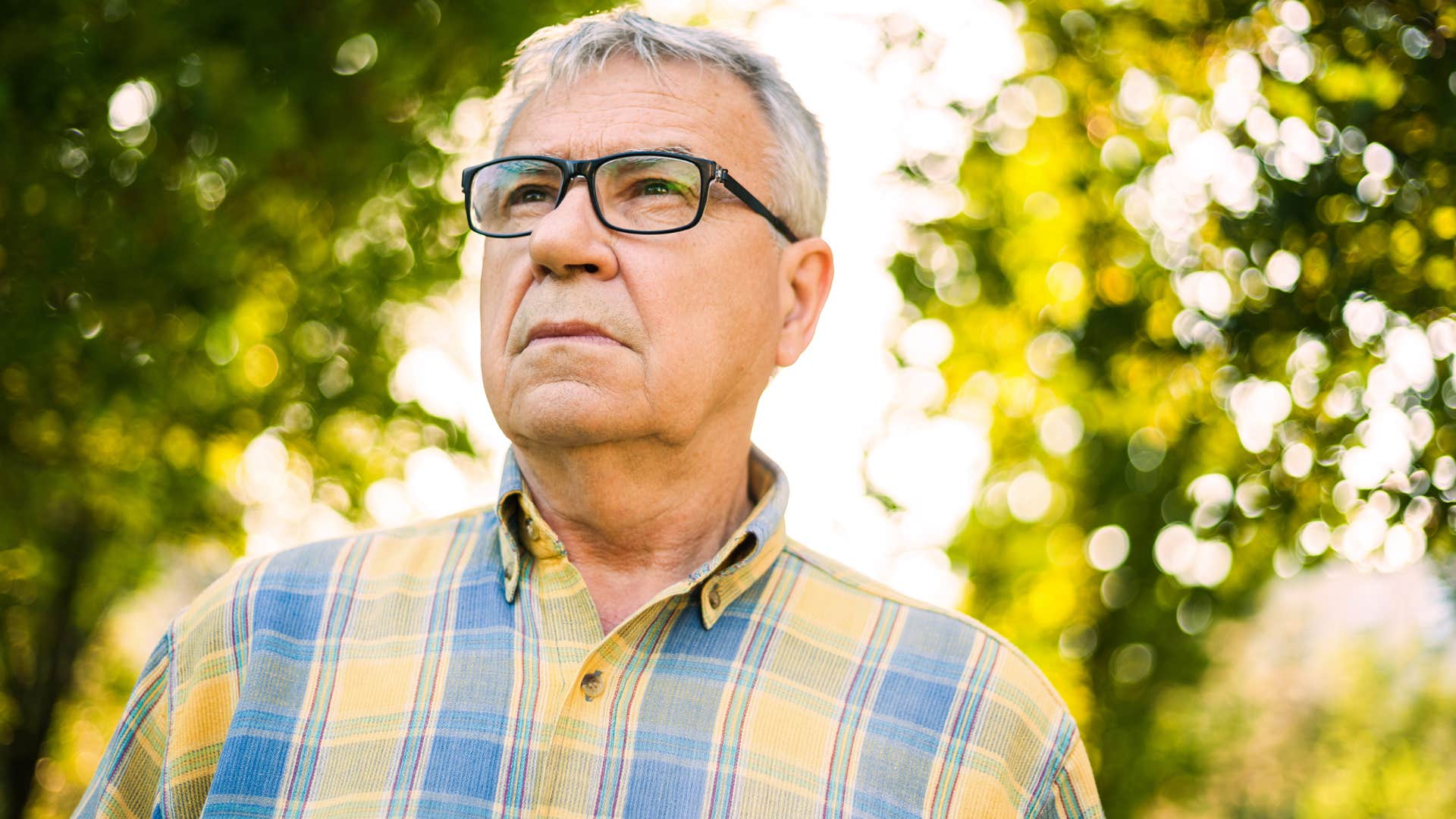 Mladen Mitrinovic | Shutterstock
Mladen Mitrinovic | Shutterstock
According to experts from Cleveland Clinic, hypervigilance is essentially a state of "hyper-awareness," where your body and mind are constantly on edge, searching for signs of danger and threats to your well-being. Feeling this need to constantly "keep watch" can encourage people to develop suspicions of others faster and avoid social situations where they're likely to face fears of discomfort, anxiety, or getting hurt.
People who lose interest in talking to anyone as they get older usually fall into this routine of hypervigilance in their daily lives, crafting their routines and rituals around avoiding social interactions and protecting their sense of comfort.
9. They grew out of their friendships
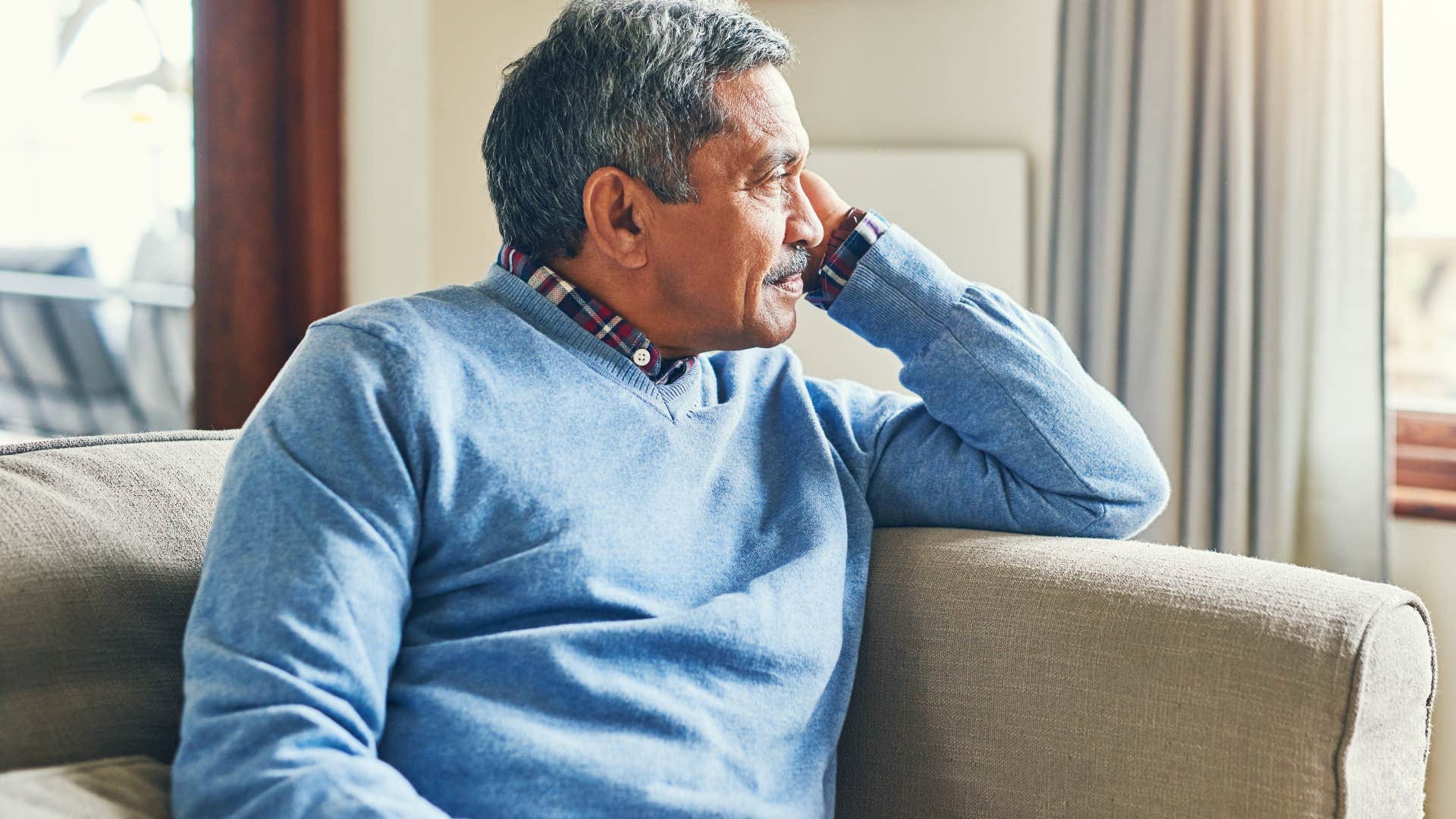 PeopleImages.com - Yuri A | Shutterstock
PeopleImages.com - Yuri A | Shutterstock
Outgrowing relationships and friendships is an entirely natural human experience, especially as you grow older, experience more life-altering events, and completely form your identity, values, and belief system. It doesn't have to be a negative experience to lose a friend or grow away from a partner, but it often does encourage people who lose interest in talking to anyone as they grow older to avoid making new connections.
Especially considering it's much harder for a lot of people to make friends as an adult without structures like the workplace, a classroom, or a city clustered with friends to rely on, it's not surprising that for aging populations, they're more likely to resort to their solitude and personal time when they no longer see their friends, family, or familiar connections.
10. They struggle to connect with people who have differing opinions
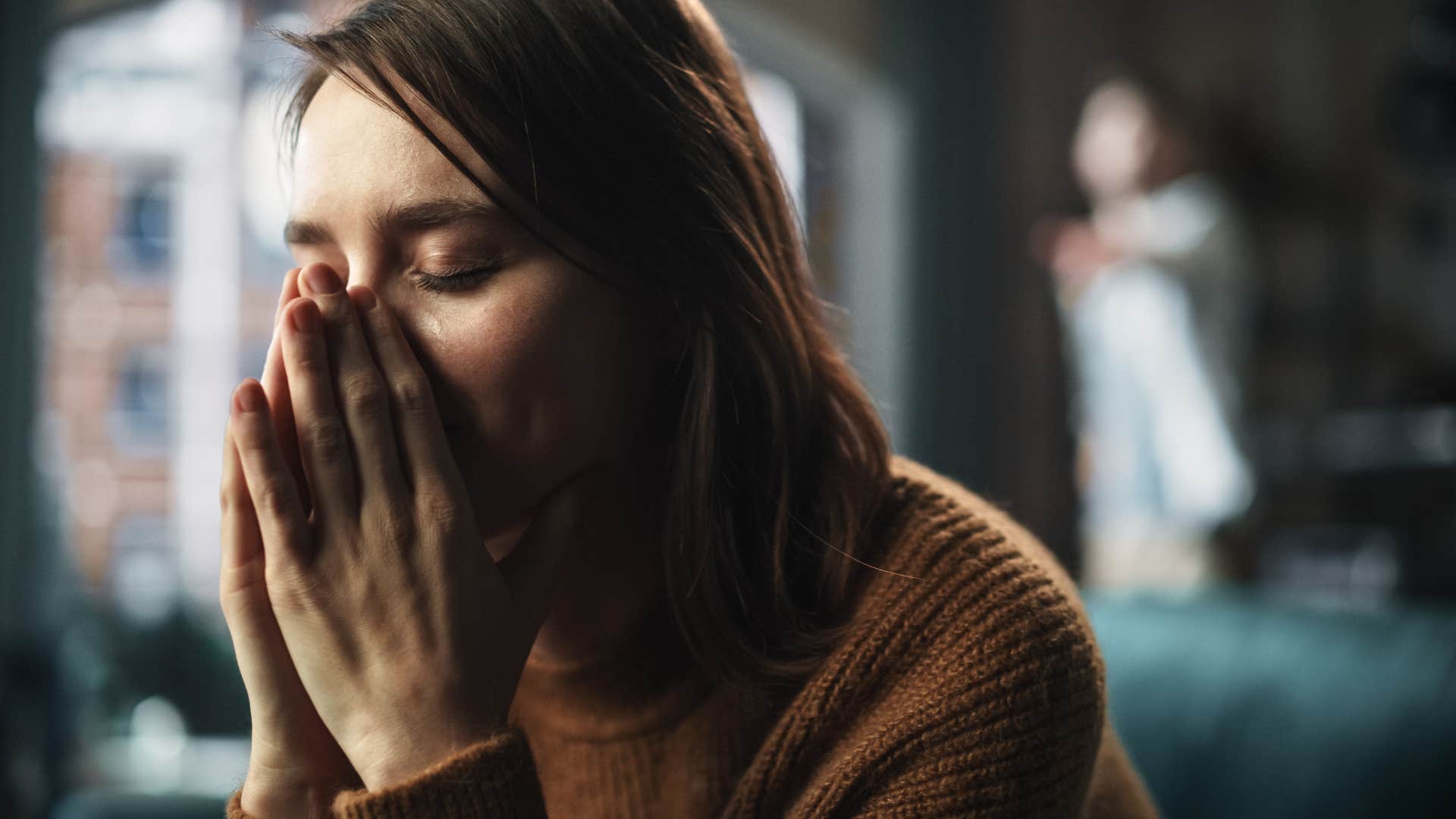 Gorodenkoff | Shutterstock
Gorodenkoff | Shutterstock
Overcoming anxiety and fear as an older adult can be difficult, especially amid change and uncertainty, but it's an experience that many people share. In today's world, many aging populations are isolating themselves to cope with their fear of the "other," falling victim to a society characterized by isolationism and rugged individualism.
Older generations like baby boomers generally value social connections and family, but living in a society where "othering" is common and political differences of opinion and values are divisive — it's not entirely surprising that they're losing interest in talking to anyone, at least those who don't share the same values and opinions.
11. They're grappling with limiting physical changes
 brizmaker | Shutterstock
brizmaker | Shutterstock
Sadly, it's not entirely uncommon for aging populations to experience more loneliness and social isolation as they grow older, whether it's by choice or not. People who lose interest in talking to anyone as they get older usually have the reasons included above, but sometimes, it's their physical limitations, changing bodies, or disability symptoms that urge them to isolate and avoid social interactions.
From struggles with hearing, to vision loss, and physical impairments that make it difficult to exert energy, it's not uncommon for aging people to prefer staying home, rather than going in public or saying "yes" to social events where they may have less control.
Of course, there's also an element of societal shame associated with disabilities and aging that's impossible to ignore. No matter how conscious an aging person is of the stigmas around growing older, they sometimes fall victim to internalizing this discomfort, feeling an urge to self-isolate and avoid social interactions when they're struggling with a physical ailment or disability.
Zayda Slabbekoorn is a staff writer with a bachelor's degree in social relations & policy and gender studies who focuses on psychology, relationships, self-help, and human interest stories.

